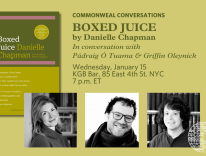In early 1986 I spent the night in a Japanese Buddhist monastery on Mount Koya and the next morning went to explore the great cemetery Okunoin, established in the 9th century. It’s the largest cemetery in Japan with a million or more people wanting to be buried near the Buddhist saint Kukai so they can all enter paradise together.
I was with a middle aged female Japanese professor and her very young boyfriend, a beautiful blonde haired blue eyed metrosexual. Both of them were confirmed hipsters and they tended to be fun company when they were doing their mommy/son act.
The cemetery is built in a crowded valley and while a paved path runs through it from the front gate to Kukai’s tomb at the end, and while the rich and famous of 1100 years of Japan’s history are buried or at least memorialized in fancy tombs along that path, there is really no plan to the place. Everyone else who could make it in is buried wherever they can find a spot. The cemetery itself is very overgrown and only people with living descendants have their graves looked after. The rest is wild and a bit dangerous with toppled tombstones and accumulations of brush and mud.
After checking out the main monuments, we decided to go up the hillside a bit. The cemetery is sort of forested and as we wandered outside of the main path, we found a secluded small flat place where we stopped for a moment to rest. On this place were three ancient collapsed tombstones and graves. The tombstones had fallen over and were partially buried. The stone boxes where the ashes of the dead has originally been placed were also either knocked over or at an angle.
Out of curiosity, we dug out the tombstones and tried to read them. As far as we could tell, they were all from the 17thh century. Two belonged to townsmen and one to a samurai. After we cleaned these off the best we could, we decided to restore the three graves. We pulled the weeds and the brush out and reset the tombs and the tombstones. This was probably the first time this had been done in 300 years.
When we finished, we stood back and admired our work; this little bit of order we had created among the chaos. It was then that we decided to complete the Japanese custom of leaving an offering for the dead. Typically, the Japanese will leave incense sticks burning as well as some seasonal fruit and maybe some sake. Down by the nice graves near the main path there were dozens of graves with hundreds and hundreds of incense sticks, so we stole some of these for our graves. But it seemed too intimate a violation to steal any fruit or sake. So we went outside the cemetery until we found some vending machines. We bought some jars of very cheap sake (not what one would usually leave on a grave) and we decided to do something special for our samurai. So for him we also bought some packs of cigarettes and some pornographic magazines.
We took all this back to our site and set them up in the traditional manner. We lit the incense and I think that we also lit up a cigarette for the samurai. And we left the sake and the porn mags. This produced a very interesting tableau in that eerie, sad, formal place. Then we did a formal bow and left. I remember thinking that it was very funny, but that it also didn’t feel right that we were entertaining ourselves at the expense of a dead stranger.
It was from that point on that I found myself having a run of amazing bad luck in Japan. I became ill and my marriage at the time, which admittedly had not been very strong, began to utterly and quickly collapse. I started to have serious difficulties with some of my students and I had a falling out with the professor I had been with at the cemetery. I also had a strange falling out with my own major professor back in the States as well as with my department itself. Within a month of returning to America, my life as I had known it had collapsed. I was no longer married and no longer a student. My love for the Japanese language and history, which had gotten me to a point where I could read Japanese well enough to do research in it, faded. I became depressed.
Had I been cursed from mocking a dead man? We don’t think like that today, so the modern rationalist in me has to say no. But still. But still…


